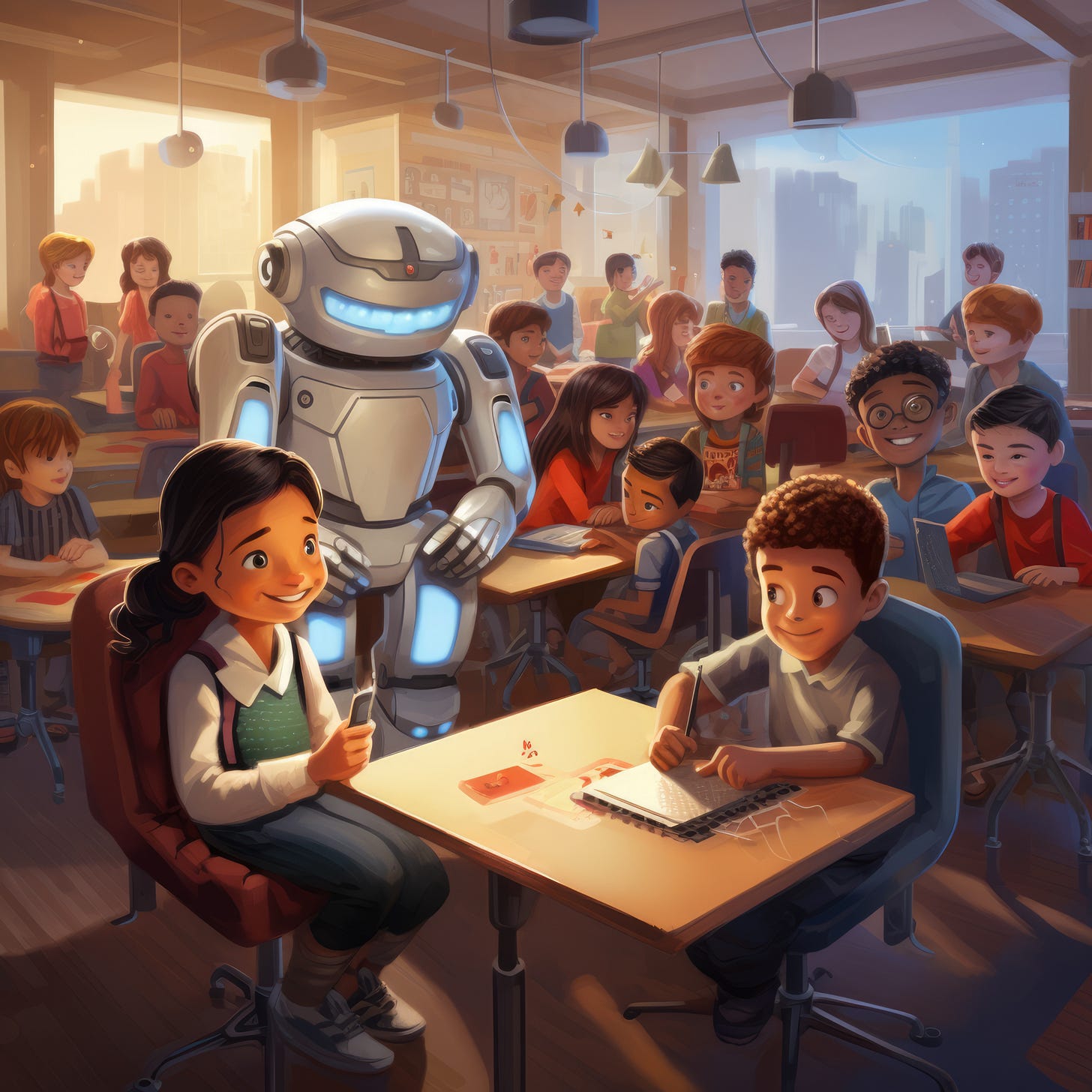'Mom, do robots teach in schools now?'
The year is 2030. The question is from Jenny, a curious 10-year-old, strutting happily beside her mother, a high school teacher, as they head back home from school. Her mom laughs and shakes her head. 'Not quite, but some classrooms are using AI to help teachers and students.'
This conversation isn’t as futuristic as it seems. This would definitely be a normal discussion in schools, work places and homes come 2030.
Artificial Intelligence (AI) is already part of education, it is no longer a sci-fi concept- it’s woven into the fabric of education, from smart tutoring systems to automated grading and personalized training. And we should expect to see more of it in few years to come. Michael Borne presumed as much in his article on Six predictions For Education and Workforce in 2025.
As we celebrate International Day of Education 2025, themed 'AI and Education: Preserving human agency in a world of automation' by UNESCO, we must ask this pertinent question: Is AI just another tool, or is it changing learning in K-12 schools and higher education forever?
AI: The New Class Assistant
Teachers can use AI to automate and customize lesson plans, track progress, and even help students struggling with subjects like math and language learning. AI chatbots can assist students, providing instant feedback, but nothing replaces the human touch in education. Because AI is not here to replace teachers but to assist them. AI can reduce grading time and administrative burdens, but mentorship and creativity remain uniquely human.
In a 2023 Pew Research Center survey, 35% of K-12 teachers were uncertain about the impact of AI tools in education, while only 6% believed these tools did more good than harm. In contrast, by 2024, the proportion of teens using ChatGPT for schoolwork doubled from 13% to 26%. Notably, older students, such as 11th and 12th graders, were more likely to use ChatGPT, with almost a quarter reporting having done so.
Parents and Navigating the AI Landscape
Millennial Parents see AI as both a blessing and a challenge. While it helps kids learn independently, it also raises concerns about screen time and critical thinking. However, balance is key—AI should support education, not replace the learning process. A recent study shows that while 54% of teenagers find it acceptable to use AI for research, only 18% believe it should be used to write essays. This suggests that most students understand the importance of developing their own skills, rather than letting AI do all the work. Schools and parents must reinforce this mindset, ensuring AI is used responsibly, rather than as an easy way out. It would also be advisable for parents to help their kids embrace newly introduced courses like robotics, prompt engineering, or artificial intelligence in help them key into the future of technological advancement.
Challenges and Considerations
AI is a tool, but education will always be human-centered. While AI brings benefits, challenges remain: ensuring equitable access, protecting student data, and preventing over-reliance on technology. As we mark this International Day of Education, our goal is to ensure technology enhances learning while keeping human influence at its core.








